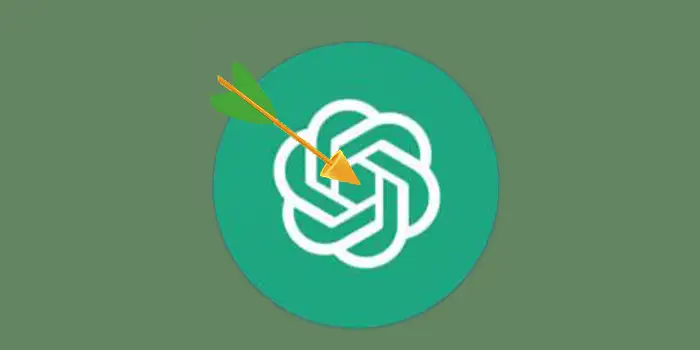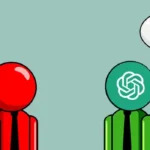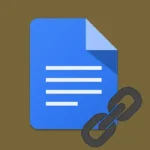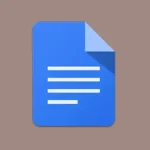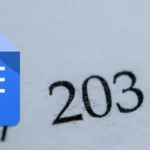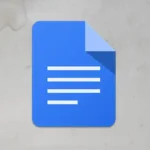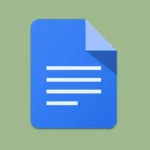I’m a big fan of ChatGPT and I have often found myself amazed by its ability to generate human-like responses to my queries. However, amidst my fascination, I’m also concerned about the accuracy of this AI language model.
ChatGPT is not totally accurate and it still produces incorrect information even though it demonstrates high language capabilities. Factors such as limitations in its knowledge cutoff and the inherent complexity of language can contribute to these occasional accuracies. Critical evaluation of its responses is essential for ensuring accurate information.
In this blog post, I will not only share my personal experiences about the accuracy of ChatGPT but also incorporate insights from OpenAI, the company behind ChatGPT.
Is ChatGPT Accurate?
I’m a big fan of tech and when ChatGPT was launched, I had a keen eye for its accuracy. That’s why I tried to unravel the complexities surrounding ChatGPT’s performance.
In the realm of AI, ChatGPT has emerged as a remarkable achievement. It captivated its users with its ability to generate human-like responses. However, the burning question remains: just how accurate is this AI chatbot?
To answer that question, we must delve into the underlying mechanisms that power ChatGPT’s intelligence. Developed by OpenAI, this language model is trained on a vast amount of text data, equipping it with an extensive vocabulary and contextual understanding.
With that knowledge, ChatGPT can strive to deliver an accurate response to user queries. But, even the most advanced AI systems are not infallible.
In my quest, I discovered that ChatGPT, with its linguistic powers, attempts to provide accurate information and answer queries to the best of its abilities. But there were detours along the road, just as in every journey.
Sometimes, ChatGPT’s responses were spot-on, impressing me with its vast knowledge and strange understanding. Other times, though, it can stumble upon misinformation.
But fear not, OpenAI, the brilliant minds behind ChatGPT, shed light on its accuracy. They explained that while ChatGPT strives to be accurate, it can occasionally stumble due to the complexity of language and limitations in its training.
They also shared their commitment to continue the improvement of their AI chatbot and encouraged users to verify information independently to ensure accuracy.
Even though ChatGPT is not totally accurate, I still consider this an impressive AI language model because it has made significant strides in mimicking human-like conversation.
It is a testament to the advancements in natural language processing and machine learning.
How Accurate Is ChatGPT in Providing Information
ChatGPT’s accuracy in providing information has been a subject of scrutiny and improvement ever since this AI language model was launched. I have seen how this AI chatbot exhibits impressive capabilities, but, often it generates inaccurate or misleading responses.
OpenAI has already undertaken various measures to evaluate and enhance ChatGPT’s accuracy. To assess their AI chatbot performance, they conducted an internal study using a methodology known as “Winning Model Annotation” (WMT).
In this evaluation, human evaluators compared ChatGPT’s responses against those of other models. They considered factors like factual correctness, coherence, and relevance. The specific data from this study is not publicly available, OpenAI has shared insights based on their findings.
They acknowledge that ChatGPT performs well on factual questions but falls short of human-level accuracy. This recognition of its limitation prompted OpenAI to caution users against blindly trusting its responses and always verify independently.
OpenAI has already taken a lot of steps to enhance ChatGPT’s training process. They made a lot of efforts to include diverse and reliable sources of data during training to reduce inaccuracies.
There are no accuracy metrics or data that are available as of now, but OpenAI’s commitment to transparency and continuous improvement is evident in its research publications.
They also have public statements that they will continue to improve their AI chatbot. From what I saw, they are releasing new and more advanced versions. The accuracy of ChatGPT can vary across different domains and topics. There are times that it may struggle with niche or specialized subjects where training data is limited.
Does ChatGPT Generate Wrong Answers?
There are times when ChatGPT can generate wrong answers. This is like when your friend tells you something, but it’s not true.
This AI language model was designed to mimic human-like conversations, but it doesn’t possess true understanding or knowledge like a human does. ChatGPT learns from a lot of stuff it reads, but sometimes it gets confused or doesn’t have the most accurate information.
That’s why it’s very important to be careful and not believe everything ChatGPT tells us right away. For example, every time we hear something interesting, what we do is to make sure it’s true before sharing it with others.
We should always double-check what ChatGPT says by asking other trusted sources like books, experts, or websites that we know are very reliable.
We always need to investigate and dig deeper if we think ChatGPT’s response is incorrect. We must match it to what other trusted sources are saying. It’s like being a detective looking for clues to solve a mystery.
I know ChatGPT is an amazing tool for learning new things, but I always use it wisely. I always have a critical eye for the information it produces. What I do is double-check the information so I can make sure that I’m getting accurate answers.
What Factors Affect the Accuracy of ChatGPT’s Responses?
There are several factors that affect the accuracy of ChatGPT’s responses and understanding these factors is important because you will have a clear picture of the model’s limitations.
- Training Data: ChatGPT gains knowledge from the enormous amount of text data that is accessible online. The accuracy of its replies is greatly influenced by the standard, variety, and relevancy of this training data. The accuracy of the produced replies using ChatGPT may be impacted if the training data contains biases, errors, or out-of-date information.
- Source of Reliability: Information from a variety of sources, including websites, books, and articles, is included in the training data for ChatGPT. These sources’ dependability and trustworthiness might differ. The model may produce less accurate results if it draws its learning from sources that are known to be untrustworthy or to spread false information.
- Context and Question Phrasing: The way a question is asked and the context provided can influence ChatGPT’s understanding. If your prompt or question has a lack of context or unclear phrasing, it can lead to irrelevant answers. You need to refine the question and provide more context so it can improve the accuracy of the responses.
- Domain Expertise: The expertise of ChatGPT is not confined to a single field or subject. Although it has a comprehensive awareness of many different topics, its skill in specialized or specialty areas may be restricted. In such sectors where it lacks thorough training data, it can find it difficult to give reliable answers.
- Ongoing Model Improvements: By fine-tuning its training techniques, taking into account user feedback, and correcting discovered limits, OpenAI strives to make ChatGPT more accurate over time. The accuracy of the model might increase over time as it develops and receives updates.
Most users today are amazed by the ability of ChatGPT without knowing that it can still provide inaccurate responses. Users should approach this AI language model with a critical mindset and be aware of the potential limitation.
By considering the factors that I’ve mentioned above, users can make informed judgments about the accuracy and reliability of ChatGPT’s generated information.
Final Thoughts
Exploring the question of whether ChatGPT is accurate has provided us with valuable insights. I know that this is undoubtedly an impressive AI language model. But, we must approach its responses with caution and critical thinking.
Through this journey, we have learned that ChatGPT can occasionally generate incorrect information due to the factors that I’ve mentioned.
This will serve as a reminder that no AI system is perfect that’s why it’s always essential to verify information from trusted sources independently.
I hope that reading this article will give us a chance to consider our position as AI technology consumers. While ChatGPT can be a valuable tool, it is not a substitute for human intellect and discernment.

